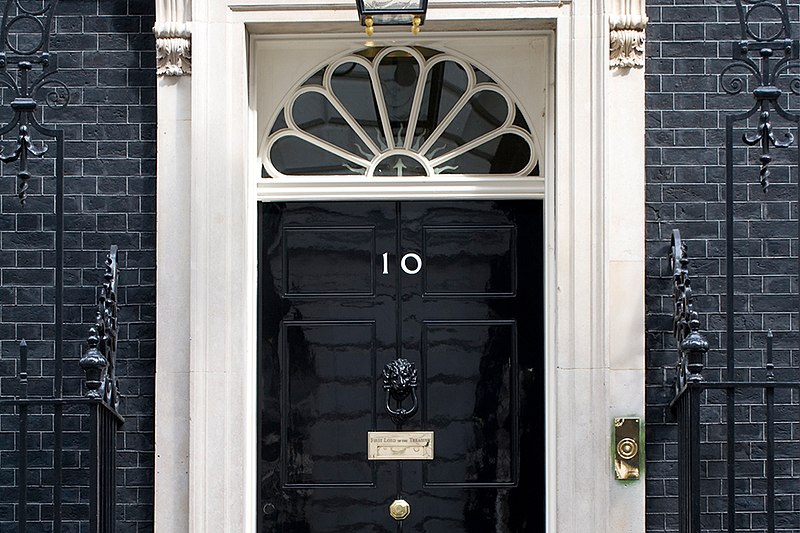This week, the government of the United Kingdom introduced legislation that will protect Northern Ireland’s native language. This marks the first time such legislation was introduced by the UK government.
The UK government has introduced a bill that will grant protection to the Irish language, sometimes known as Gaelic, used in Northern Ireland. The country’s main representative in Northern Ireland hailed the development as a “significant milestone” last week.
The introduction of the legislation comes as the commitments to do so have been blocked or were stalled for decades. This was due to opposition from the pro-British unionist parties in Northern Ireland. The bill will also grant protection to the Ulster scots language as well.
To note, the Irish language became an official language in the Republic of Ireland by the 1920s but was a minority language in Northern Ireland. The language has also been linked to Irish nationalism and republicanism by both its defenders and critics.
“For the very first time in the history of this state, a state which was designed to exclude Irish identity and Irish language in particular, we have secured official status for Irish,” Conradh na Gailge advocacy campaigns officer Ciaran Mac Giolla Bhein told Al Jazeera, describing the legislation as a “historic achievement.”
Bhein said the bill could potentially transform the public’s perception of the language while providing better service for Irish speakers and those who raise their families through Irish. The bill will also strike down a 285-year law that prevents the use of Irish in courts.
Last week, Conservative lawmaker Paul Holmes announced that he would be stepping down from his post as the assistant to the Interior minister, citing his intention to focus more on his constituents. This followed a report revealing a series of illegal COVID-19 lockdown parties at the Downing Street office.
Prime Minister Boris Johnson said he took responsibility for the events but refused to step down.
“It is clear to me that a deep mistrust in both the government and the Conservative Party has been created by these events…It is distressing to me that this work on your behalf has been tarnished by the toxic culture that seemed to have permeated Number 10,” Holmes said in a statement.



 New York Legalizes Medical Aid in Dying for Terminally Ill Patients
New York Legalizes Medical Aid in Dying for Terminally Ill Patients  Trump Signs Executive Order Threatening 25% Tariffs on Countries Trading With Iran
Trump Signs Executive Order Threatening 25% Tariffs on Countries Trading With Iran  Ohio Man Indicted for Alleged Threat Against Vice President JD Vance, Faces Additional Federal Charges
Ohio Man Indicted for Alleged Threat Against Vice President JD Vance, Faces Additional Federal Charges  Trump Endorses Japan’s Sanae Takaichi Ahead of Crucial Election Amid Market and China Tensions
Trump Endorses Japan’s Sanae Takaichi Ahead of Crucial Election Amid Market and China Tensions  TrumpRx Website Launches to Offer Discounted Prescription Drugs for Cash-Paying Americans
TrumpRx Website Launches to Offer Discounted Prescription Drugs for Cash-Paying Americans  Trump Backs Nexstar–Tegna Merger Amid Shifting U.S. Media Landscape
Trump Backs Nexstar–Tegna Merger Amid Shifting U.S. Media Landscape  TrumpRx.gov Highlights GLP-1 Drug Discounts but Offers Limited Savings for Most Americans
TrumpRx.gov Highlights GLP-1 Drug Discounts but Offers Limited Savings for Most Americans  US Pushes Ukraine-Russia Peace Talks Before Summer Amid Escalating Attacks
US Pushes Ukraine-Russia Peace Talks Before Summer Amid Escalating Attacks  Pentagon Ends Military Education Programs With Harvard University
Pentagon Ends Military Education Programs With Harvard University  U.S. Lawmakers to Review Unredacted Jeffrey Epstein DOJ Files Starting Monday
U.S. Lawmakers to Review Unredacted Jeffrey Epstein DOJ Files Starting Monday  U.S. Announces Additional $6 Million in Humanitarian Aid to Cuba Amid Oil Sanctions and Fuel Shortages
U.S. Announces Additional $6 Million in Humanitarian Aid to Cuba Amid Oil Sanctions and Fuel Shortages  Nighttime Shelling Causes Serious Damage in Russia’s Belgorod Region Near Ukraine Border
Nighttime Shelling Causes Serious Damage in Russia’s Belgorod Region Near Ukraine Border  Trump’s Inflation Claims Clash With Voters’ Cost-of-Living Reality
Trump’s Inflation Claims Clash With Voters’ Cost-of-Living Reality  Japan Election 2026: Sanae Takaichi Poised for Landslide Win Despite Record Snowfall
Japan Election 2026: Sanae Takaichi Poised for Landslide Win Despite Record Snowfall  China Warns US Arms Sales to Taiwan Could Disrupt Trump’s Planned Visit
China Warns US Arms Sales to Taiwan Could Disrupt Trump’s Planned Visit  Netanyahu to Meet Trump in Washington as Iran Nuclear Talks Intensify
Netanyahu to Meet Trump in Washington as Iran Nuclear Talks Intensify  Federal Judge Restores Funding for Gateway Rail Tunnel Project
Federal Judge Restores Funding for Gateway Rail Tunnel Project 































